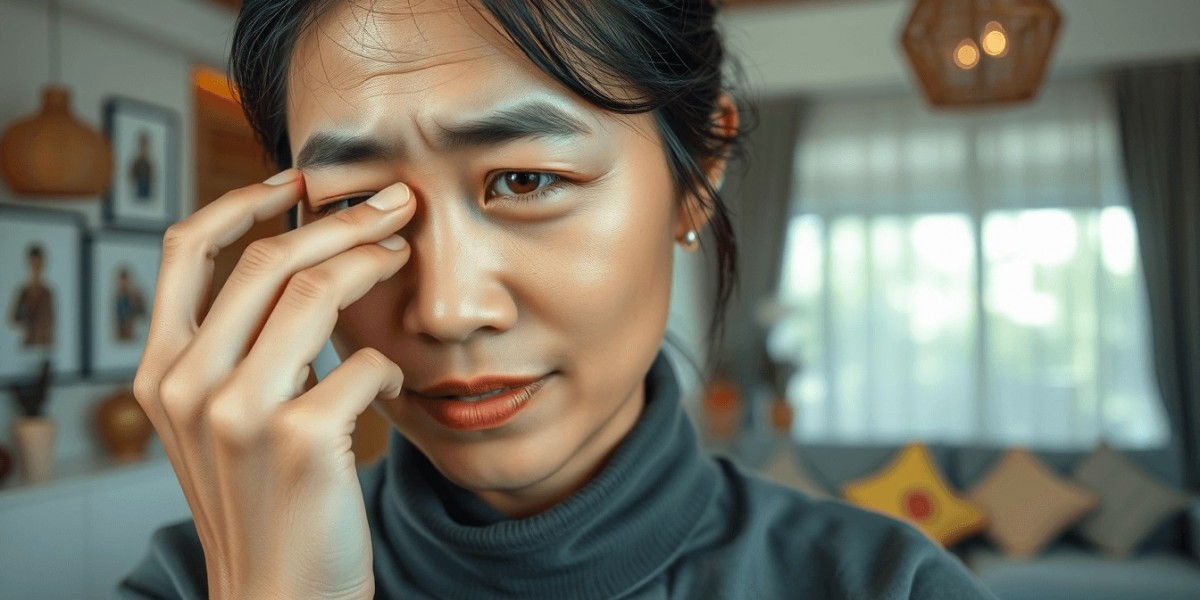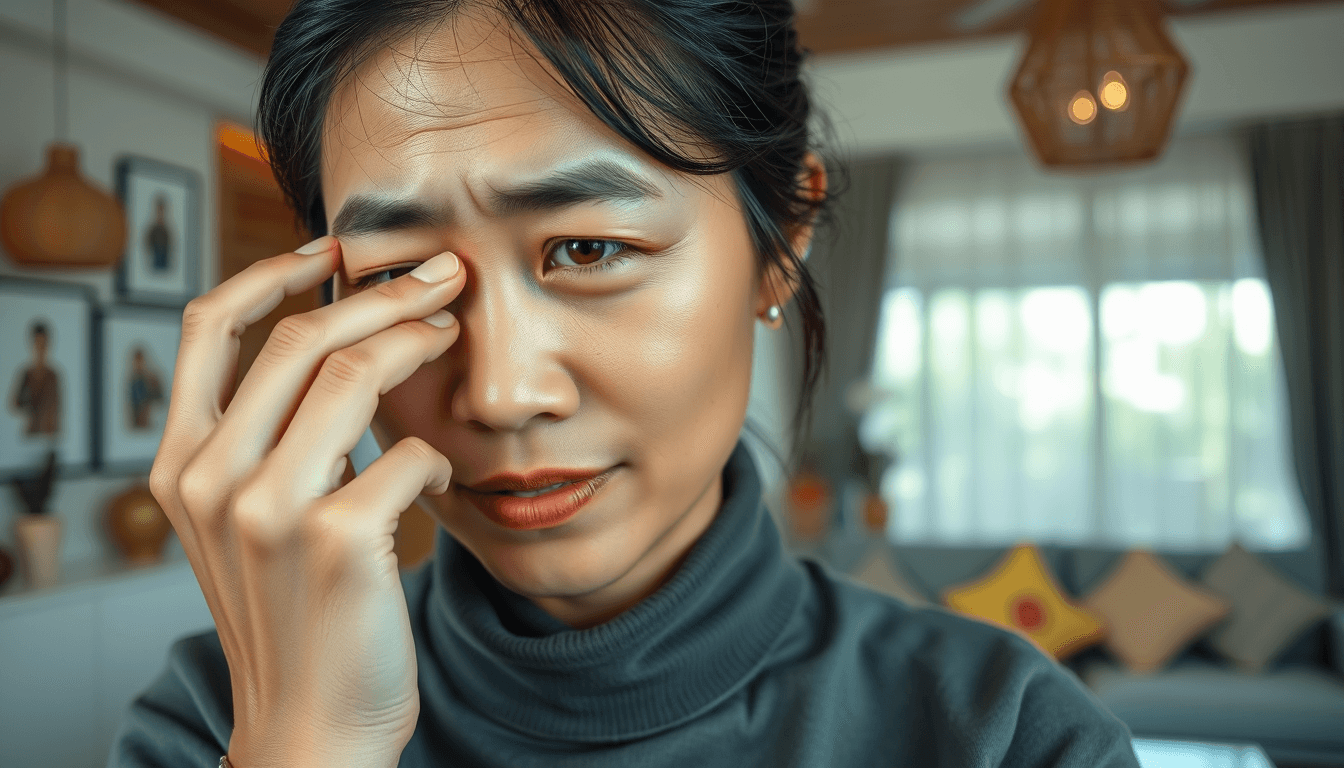
Meaning of Left Lower Eye Twitch According to Javanese Primbon: Myths and Facts
Twitching in the left eye lower part is a phenomenon often experienced by many people. Although it seems trivial, this twitch is often associated with various meanings and signs according to traditional beliefs, especially in Javanese primbon. However, does the meaning of left lower eye twitch according to Javanese primbon have a scientific basis or is it merely a myth? Let’s explore further in this article.
1. Definition of Eye Twitching
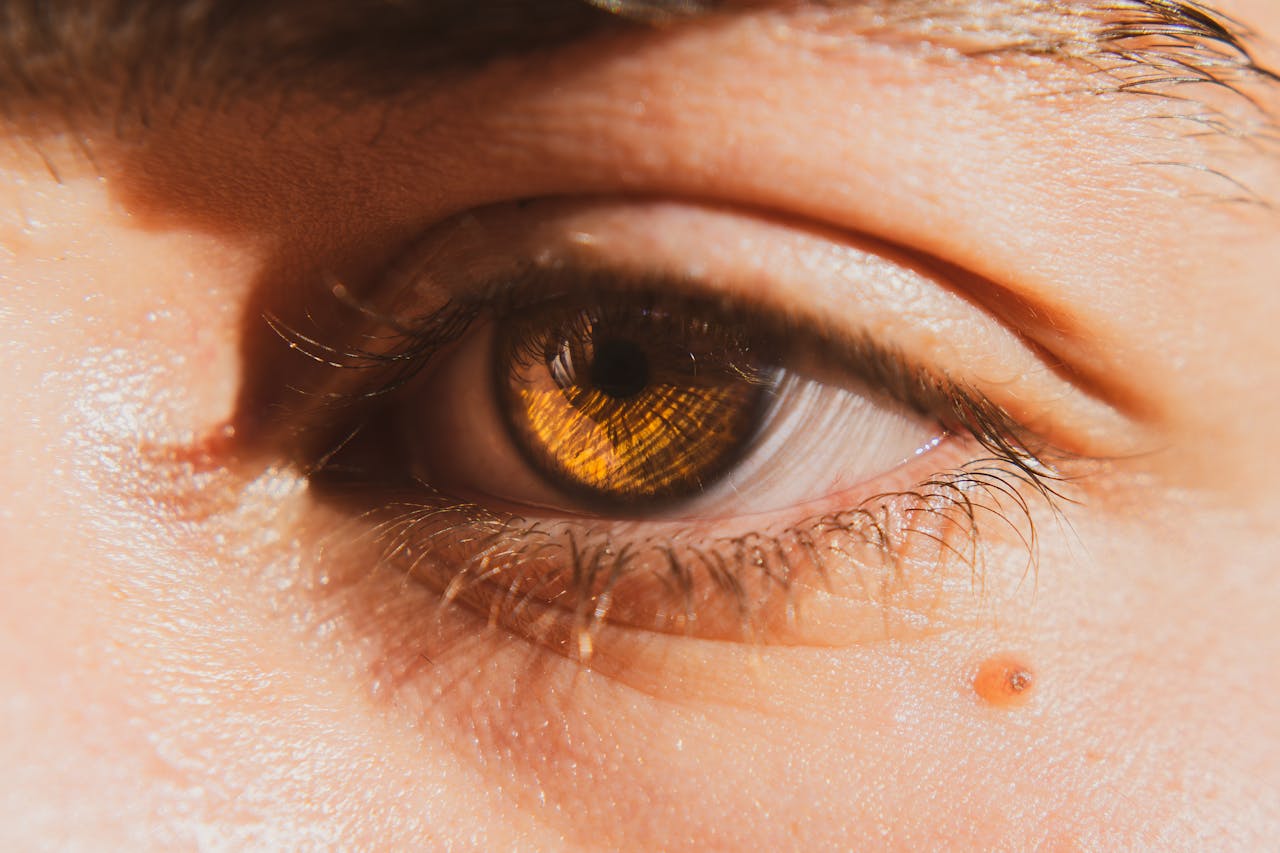
eye (credit: pexels.com)
Eye twitching, or what is medically termed blepharospasm, is the involuntary contraction of small muscles around the eye. This condition is generally harmless and can resolve on its own. Twitching can occur in the right or left eye, on the upper or lower eyelid.
Medically, eye twitching does not have a specific meaning other than being the body's response to various triggering factors. However, in a cultural context, especially in Javanese primbon, twitching in certain parts of the body is believed to have its own significance.
Eye twitching often occurs due to several factors, such as:
- Fatigue and lack of sleep
- Stress and excessive anxiety
- Excessive caffeine or alcohol consumption
- Eye irritation
- Deficiency of certain nutrients, such as magnesium
- Side effects of certain medications
- Mild neurological disorders
Although eye twitching is generally not harmful, if it persists for a long time or is accompanied by other disturbing symptoms, it is advisable to consult a doctor for further examination.
2. Meaning of Lower Left Eye Twitching According to Javanese Primbon
In Javanese primbon, twitching of the lower left eyelid has several interpretations, including:
- A sign of receiving good news or joyful news
- Meeting someone you haven't seen in a long time
- A sign of unexpected fortune coming
- A warning to be more careful in your actions
- The possibility of experiencing sadness or disappointment
It is important to remember that these interpretations vary depending on the source of the primbon referenced. Some versions of the primbon even provide contradictory meanings for the same phenomenon.
For example, some interpret the twitching of the lower left eye as a sign of good luck, while other versions interpret it as a warning of impending disaster. This shows that primbon interpretations are not always consistent and should be approached wisely.
3. Scientific Perspective on Eye Twitching
From a scientific standpoint, twitching of the lower left eye does not have any special or mystical meaning. Health experts explain that eye twitching is caused by uncontrolled muscle contractions around the eye. Several factors that can trigger eye twitching according to medical science include:
- Eye strain from prolonged use of gadgets or computers
- Lack of sufficient sleep and rest
- Excessive stress and anxiety
- Excessive consumption of caffeine or alcohol
- Deficiency in certain nutrients, such as magnesium or vitamin B12
- Side effects from certain medications
- Irritation on the surface of the eye or eyelid
Doctors emphasize that eye twitching, including in the lower left part, is generally temporary and not harmful. However, if the twitching persists for a long time or is accompanied by other disturbing symptoms, it is advised to consult an eye doctor.
4. How to Overcome Eye Twitches
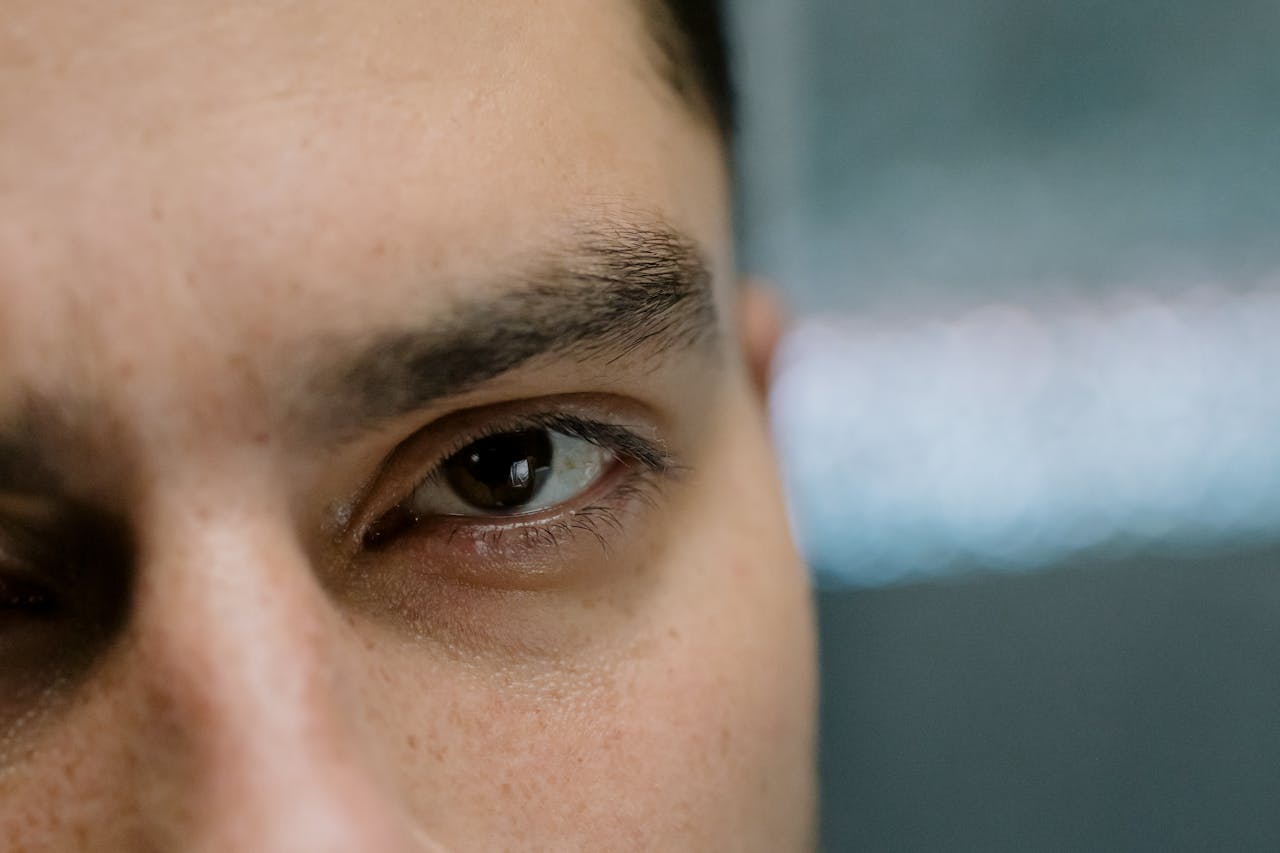
eye (credit: pexels.com)
Although eye twitches are generally harmless and will go away on their own, there are several steps that can be taken to relieve or prevent eye twitches:
- Get enough rest: Make sure you get quality sleep for 7-8 hours each night.
- Reduce stress: Practice relaxation techniques such as meditation or yoga to lower stress levels.
- Limit caffeine and alcohol consumption: Both substances can trigger eye twitches if consumed excessively.
- Stay hydrated: Drink enough water to keep your body and eyes well-hydrated.
- Use protective glasses: If you work in front of a computer, wear anti-radiation glasses to reduce eye strain.
- Do eye stretches: Every 20 minutes, look away from the screen and focus on a distant object for 20 seconds.
- Eye compress: Use a warm or cold compress on your eyes to relieve muscle tension around the eyes.
- Improve posture: Ensure that your sitting position and computer screen position are ergonomic to reduce strain on your neck and eyes.
If eye twitches persist despite implementing the above steps, it is advisable to consult an eye doctor for further examination.
5. Myths vs Facts About Eye Twitching
As time progresses, many myths circulate in society regarding eye twitching. Let’s differentiate between myths and facts:
Myths:
- Eye twitching always has a mystical meaning or a specific omen
- Left and right eye twitching have different meanings
- Eye twitching can predict the future
- Eye twitching is a sign of receiving fortune
- Eye twitching is a sign of meeting a soulmate
Facts:
- Eye twitching is generally caused by physical or psychological factors
- There is no significant difference between left and right eye twitching from a medical perspective
- Eye twitching is not an accurate indicator for predicting future events
- Eye twitching is a natural response of the body and is not related to financial luck
- There is no scientific relationship between eye twitching and meeting a soulmate
It is important to understand that although traditional beliefs and interpretations have high cultural value, the interpretation of eye twitching should not be used as a basis for making important life decisions.
6. When to See a Doctor?
Although most cases of eye twitching are not dangerous, there are some conditions that require you to consult a doctor immediately:
- The twitching lasts more than a week
- The twitching is accompanied by the eyelid closing completely
- There are changes in vision
- The face or other parts of the body twitch as well
- The eye becomes red, swollen, or discharges fluid
- The twitching is accompanied by severe headaches
- There are changes in consciousness or concentration
The doctor will conduct a thorough examination to determine the cause and provide appropriate treatment. In some cases, prolonged eye twitching can be a symptom of a more serious neurological condition, such as blepharospasm or hemifacial spasm.
7. Religious Views on Eye Twitching
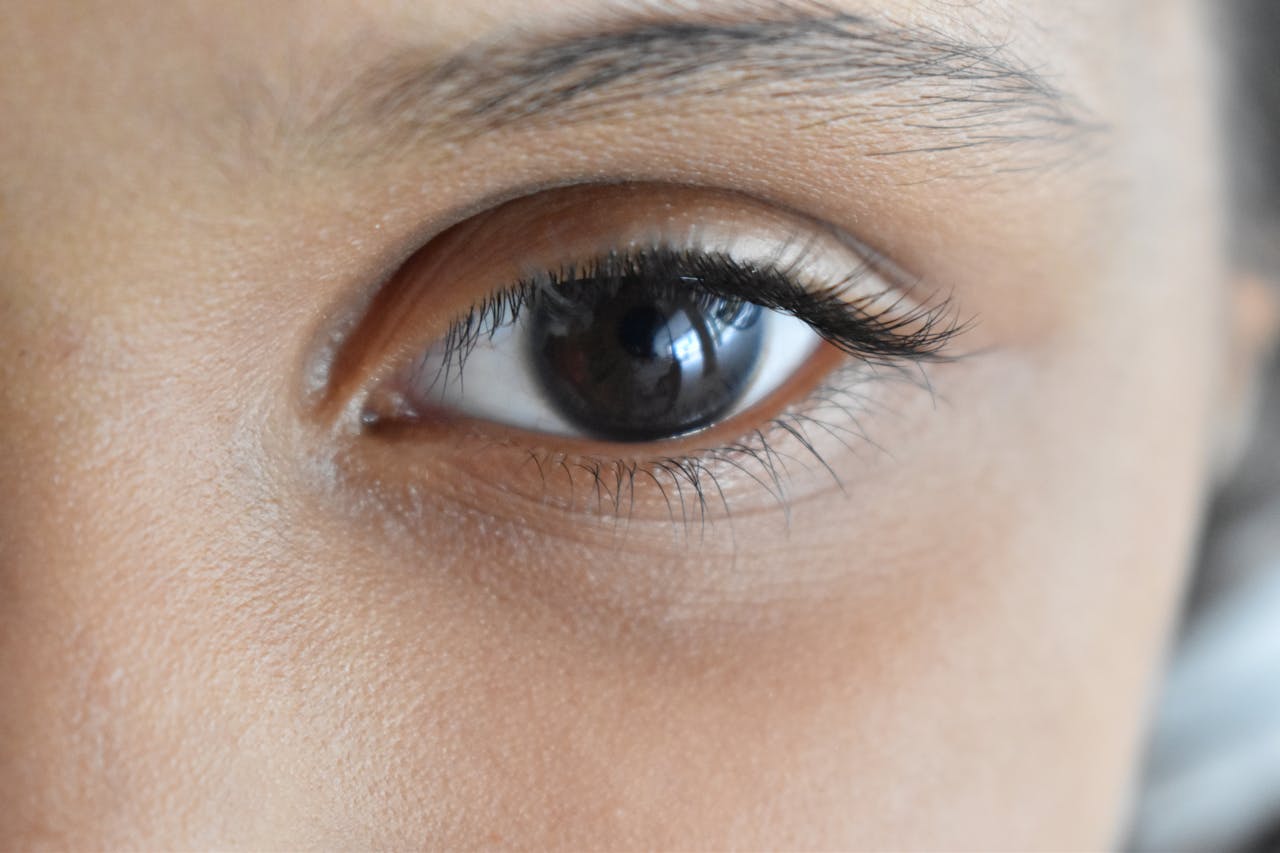
eye (credit: pexels.com)
In the context of religion, particularly Islam, the phenomenon of eye twitching does not have any special or mystical meaning. Islam teaches its followers not to overly believe in superstitions or predictions that lack scientific basis. Instead, Muslims are encouraged to always pray and put their trust in Allah SWT when facing any situation.
If experiencing eye twitching, the recommended steps are:
- Pray for health and protection from Allah SWT
- Seek medical causes and address them in permissible ways
- Not to overthink or associate it with mystical matters
- Remain grateful and take care of eye health as a blessing from Allah SWT
In a hadith, the Prophet Muhammad SAW said: "There is no 'adwa (contagion), no thiyarah (believing in bad omens), no hamah, and no shafar." (HR. Bukhari and Muslim). This hadith teaches us not to overly believe in superstitions and to rely more on Allah SWT.
8. Comparison of Eye Twitching Beliefs in Various Cultures
Not only in Javanese primbon, beliefs about the meaning of eye twitching are also found in various cultures around the world. Here are some examples:
- Chinese culture: Left eye twitching is considered a good omen, while right eye twitching is considered less favorable
- Indian culture: Left eye twitching in men is seen as a bad sign, whereas in women it is viewed as a good sign
- Western culture: Eye twitching is often associated with the saying "someone is talking about you"
- African culture: Some tribes regard eye twitching as a message from ancestors
- Hawaiian culture: Left eye twitching is considered a sign of an impending visit from a foreign guest
While it is interesting to study, it is important to remember that these beliefs have no scientific basis and should not be used as a guide in making important decisions.
9. How to Maintain Eye Health
Regardless of beliefs about the meaning of eye twitching, maintaining eye health remains important. Here are some tips to maintain eye health:
- Consume foods rich in vitamins A, C, E, and omega-3
- Wear protective glasses when engaging in activities under sunlight
- Rest your eyes every 20 minutes when working in front of a screen
- Keep your hands clean and avoid rubbing your eyes
- Have routine eye examinations once a year
- Use adequate lighting when reading or working
- Avoid smoking and limit alcohol consumption
- Get enough sleep, at least 7-8 hours a day
- Use moisturizing eye drops if your eyes feel dry
- Engage in regular exercise to improve blood circulation to the eyes
By adopting healthy lifestyle habits and regularly maintaining eye health, we can reduce the risk of eye problems, including bothersome twitching.
10. The Psychological Influence of Beliefs on the Meaning of Eye Twitching
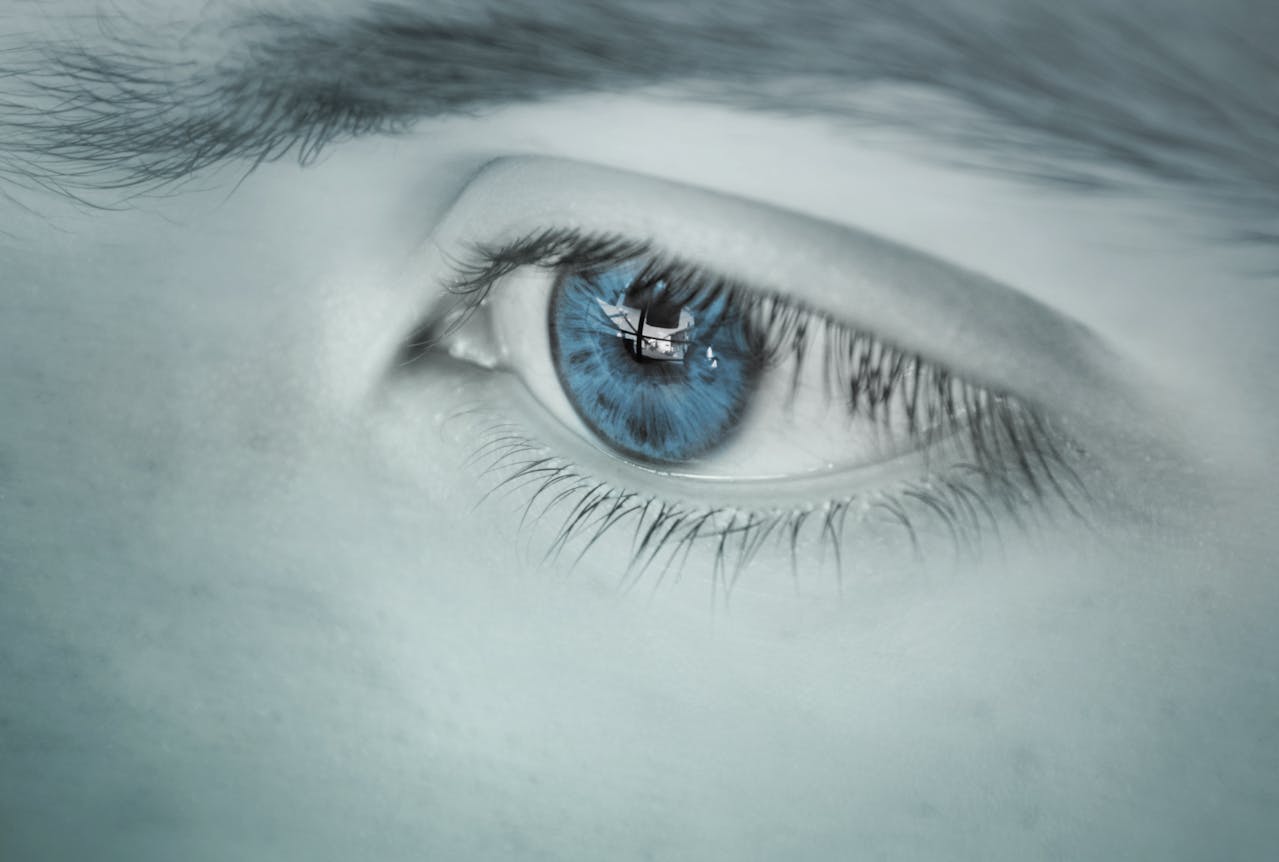
eye (credit: pexels.com)
Although medically eye twitching does not have a specific meaning, the belief in the meaning of eye twitching can affect a person's psychology. Some potential impacts include:
- Excessive anxiety when experiencing twitching that is considered a bad omen
- Unreasonable decision-making based on "signs" from eye twitching
- Ignoring medical symptoms due to being too focused on mystical meanings
- Excessive optimism when experiencing twitching that is considered a good omen
- Unnecessary stress from overthinking the meaning of eye twitching
It is important to approach the phenomenon of eye twitching proportionately and not be overly influenced by beliefs that lack scientific basis. If eye twitching causes excessive anxiety, it is advisable to consult with a psychologist or counselor for a more balanced perspective.
11. Interesting Facts About Eyes and Eye Twitches
To enhance your knowledge, here are some interesting facts about eyes and the phenomenon of eye twitches:
- The eyes blink an average of 15-20 times per minute
- Eye twitches usually last only a few seconds to a few minutes
- About 70% of people have experienced eye twitches at least once in their lives
- The eyes have the most active muscles in the body, moving more than 100,000 times a day
- Stress can increase the frequency of eye blinking
- Some people can control their eye twitches with certain relaxation techniques
- Eye twitches can be a side effect of certain types of medication
- The human eye can distinguish about 10 million different colors
- Eye twitches can be a symptom of more serious medical conditions, such as blepharospasm
These facts demonstrate how complex the eye organ is and the various phenomena associated with it, including eye twitches.
12. Conclusion
The meaning of the lower left eye twitch according to Javanese primbon is part of the rich cultural heritage and traditional beliefs that are interesting to study. However, it is important to understand that from a medical perspective, eye twitches are generally caused by physical and psychological factors that can be scientifically explained.
While there is nothing wrong with knowing cultural interpretations of eye twitches, we should not rely too heavily on those interpretations when making decisions or addressing our health. The best approach is to maintain overall eye health, lead a healthy lifestyle, and consult a doctor if experiencing disturbing symptoms.
By understanding eye twitches from various perspectives - medical, cultural, and psychological - we can approach them more wisely and proportionally. The most important thing is to always take care of our eye health as a valuable gift in our lives.
(kpl/dhm)
Disclaimer: This translation from Bahasa Indonesia to English has been generated by Artificial Intelligence.
